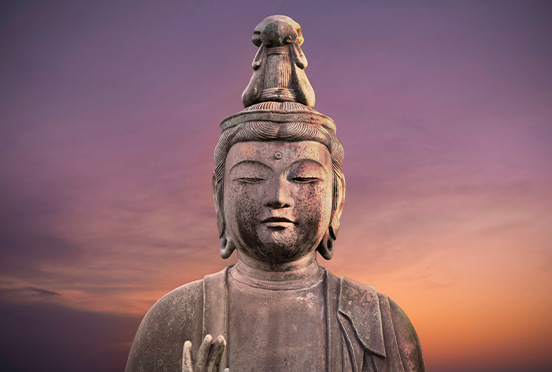 Religion is one of society’s oldest and longest-enduring pillars. Most scholars believe that the concept of religion, like many things, began in the ancient Near East. And ever since the creation of writing, people have been writing about their spiritual beliefs. But religion likely predates even that; In prehistory, there is evidence of human burial-- indicating at least the possibility of some sort of belief in an afterlife or the supernatural.
Religion is one of society’s oldest and longest-enduring pillars. Most scholars believe that the concept of religion, like many things, began in the ancient Near East. And ever since the creation of writing, people have been writing about their spiritual beliefs. But religion likely predates even that; In prehistory, there is evidence of human burial-- indicating at least the possibility of some sort of belief in an afterlife or the supernatural.
Throughout history, religion evolved into three distinct categories: polytheism, pantheism, and monotheism. But what makes these belief systems unique and different from each other, and where did they come from?
Polytheism
Polytheism is the belief in many gods. This belief system seems to have originated with Hinduism in about 2500 BCE, as recorded in the Bhagavad Gita, which also says that the multiplicity of gods are subject to one supreme Brahman god. Polytheistic cultures included some of the world’s greatest civilizations: Assyria, Babylonia, Egypt, Greece, and Rome. The common factor among all these civilizations was that the gods controlled all natural events, including rainfall, harvests, and the fertility of both the land and its people. Consequently, these cultures commonly believed they must make sacrifices that would appease their gods.
Pantheism
Pantheism is the belief that God is all, and all is God. In other words, the universe itself is God. So is nature. Consequently, pantheistic beliefs strongly hold that mankind must live in harmony with nature and all other kinds of living things; i.e., animals, birds, fish, and plants. Pantheism is the rejection of God as a singular entity or person, and the belief that God exerts active influence in the world around us. Pantheism has existed for thousands of years, and many tribal religions in Africa and North America are pantheistic.
Monotheism
Monotheism is the belief in one God that created the world, is all-knowing and has the power to intervene in worldly affairs. Monotheism has existed in the Near East since at least the Bronze Age. The most common monotheistic religions in the world today are the Abrahamic religions: Judaism, Christianity, and Islam. More than half of the world’s population believe in one of these three religions.
Judaism is one of the oldest religions still practiced today. Christianity is a derivative of Judaism, hence the term Judeo-Christian heritage when referring to the foundational commonalities of these two major religions. Christianity is responsible for the New Testament, and also for the idea of the Trinity: God the Father, God the Son, and God the Holy Spirit.
Muhammad (570–632 AD) claimed to be the ultimate prophet of God (Allah) and preached from Mecca, located in present-day Saudi Arabia. The Qur'an is the holy book of Islam and contains the teachings of Muhammad.
Nonbelief
Followers of the world’s fourth-largest religion, Buddhism, holds no personal deities for followers. Buddhists seek to achieve a state of nirvana and Enlightenment following the path of Siddhartha Gautama -- the Buddha.
Additionally, during the Enlightenment period of the 18th century, the idea of atheism established itself in the public consciousness and evolved into its own belief structure. Atheists stridently deny the existence of God in any and all forms. While a radical idea at the time, atheism has grown in popularity in the 21st century. Some atheists also subscribe to the idea of Secular Humanism- that is, the idea that human beings can be humane, kind, and ethical without religion as a moral guide.
Cultural Evolution
Social psychologist Azim Shariff posits the idea that religion is nothing more than a cultural evolution that required growing civilizations to come up with a vengeful god; i.e., a supernatural punisher, who would keep people in line. One who established rules and the punishments for breaking them. Thus the concepts of sin, hell, fire and brimstone, heaven, and eternal life. For those who believe man created God, religion is no different than fire, tools, agriculture, and all the other things ancient man created to ensure the survival of the human species.
Ultimately, the answer to the question of where religion comes from can be more than just a physical location. For you, religion may come from the Torah, the Bible, the Catholic Bible, the Qur’an, the Book of Mormon, the Four Books and Five Classics of Confucianism, or any number of other authoritative religious texts. Some religions are ancient- some are newer. Some religions have many followers- some have few. But all religious beliefs are wonderful and valid, so long as they are peaceful and do not impose their will on others.
Add Your Comment